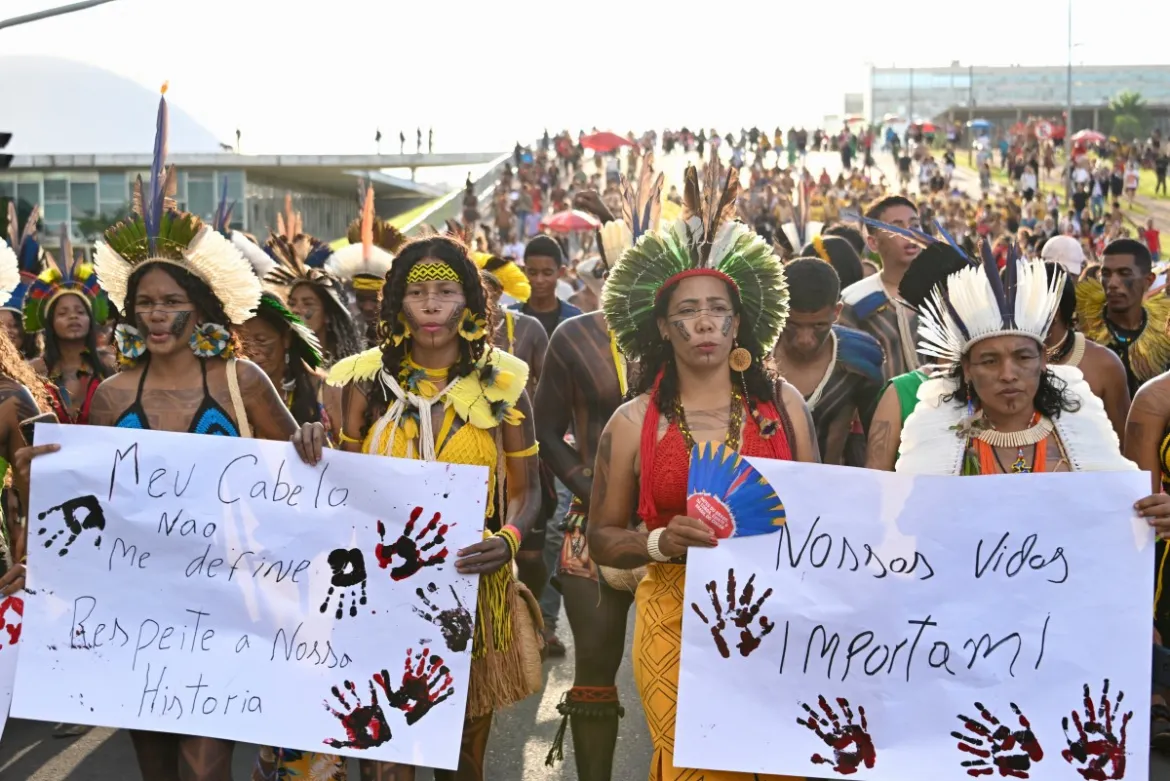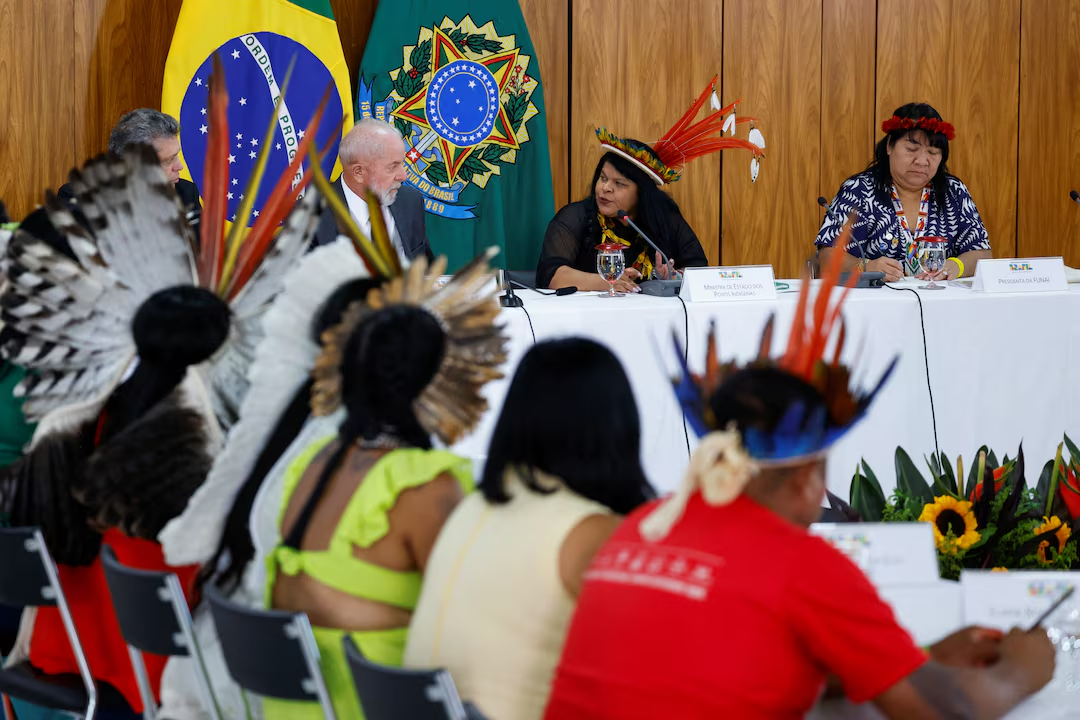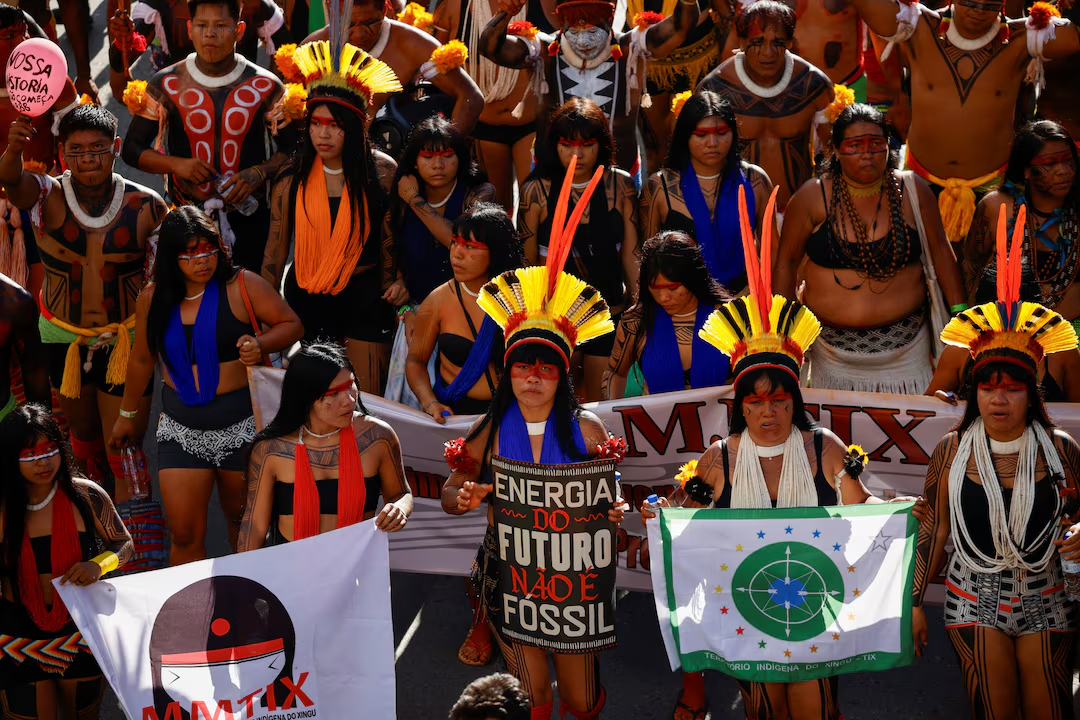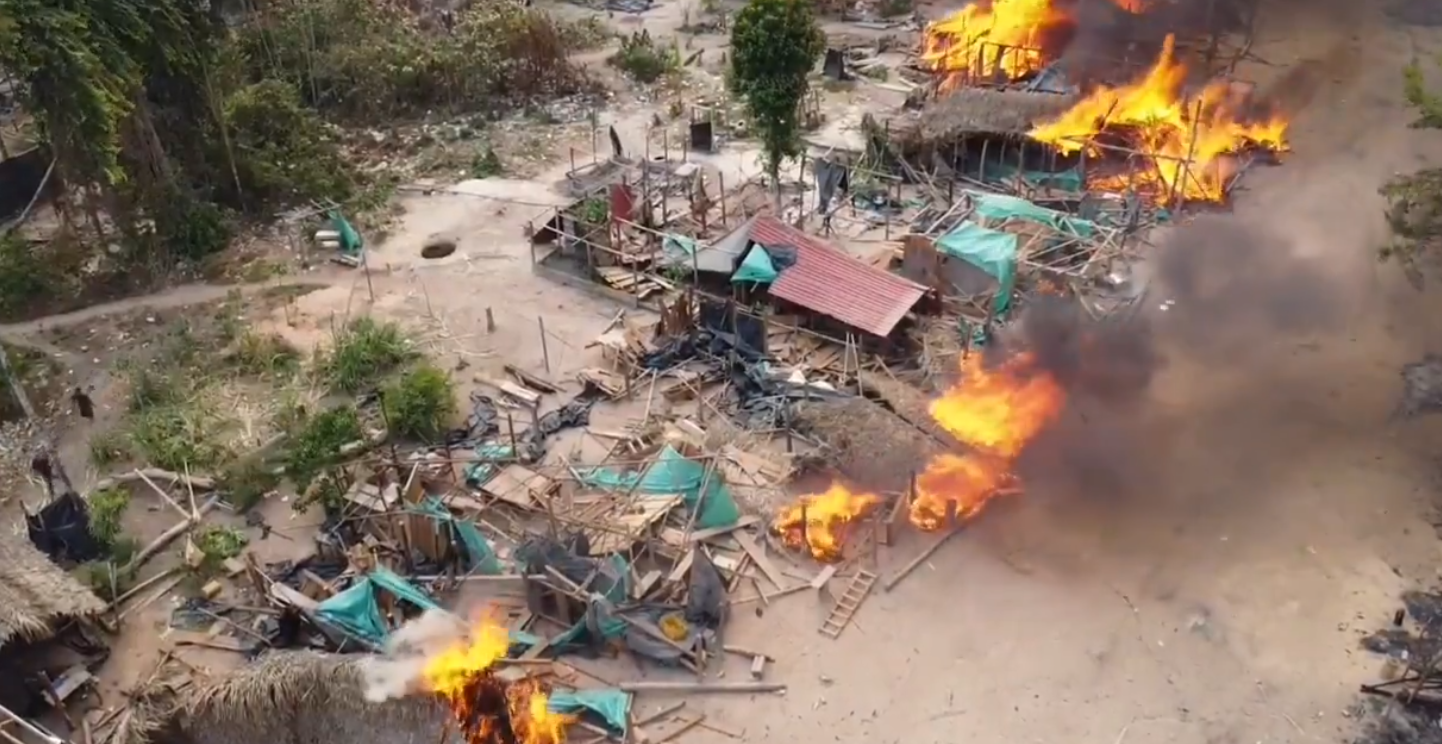Thousands of indigenous protestors marched on the streets of Brasilia, Brazil’s capital, on Thursday, calling for the government to increase security in indigenous territory, recognize community land claims, and the proposed construction of a new rail system.
The Protest:
Members of the indigenous community marched towards Three Powers Square, named for its housing of Congress, the Supreme Court, and the Planalto presidential palace, the official workplace of the President.
The march comes amid the Free Land Indigenous Camp, an annual gathering of indigenous communities to address a variety of concerns regarding communities across Brazil. The gathering began on Monday, with those gathered expressing their disappointment in President Luiz Inácio Lula da Silva’s failure to uphold promises to protect indigenous land across Brazil.

Organizers have put the estimated number of attendees at the annual gathering at 8,000, with tents and other easily transported accommodations having been set up on the city’s main esplanade. President Lula had previously been invited to the group’s prior gatherings, with leaders placing traditional headware on the president’s head last year.
“We are very disappointed with this government. We know it has many enemies, and the Congress is one common enemy,” Alessandra Korap, an indigenous leader of the Munduruku tribe, told The Associated Press. “But we didn’t expect it to demarcate only two lands this year.”
President Lula had previously promised indigenous leaders that he would create six reserves for Native Americans in April, with only two having been created just last week, which left many members of the members of the indigenous community unsatisfied with the president’s work. Possibly in an effort to address these issues, Lula invited 40 leaders of the gathering to speak with him in the Planalto presidential palace. While it is unknown what exactly the group spoke about, discussions likely revolved around the aformentioned failure to deliver on promises, alongside the drafted construction of a new railway.

“We expected a lot from the government, but it’s doing very little. We knew that Congress would be hostile, but not as much as it has been. And in Congress, the government is using Indigenous and environmental issues as bargaining chips,” Marivelton Baré, head of the Rio Negro Federation of Indigenous Organizations, told AP.
Lula stated that the failure to provide members of the indigenous community with reserves stemmed from conflict with local state governors and the government’s struggle to find accommodations for an estimated 800 people who do not belong to indigenous communities who would be forced to vacate their homes if the designations went through.

Another key concern among attendees is the planned construction of a new 590-mile railway intended to ship grain from Brazil’s farming communities to ports in the Amazon region of the country. Protestors alleged the planned construction would lead to environmental damage, with allegations of land grabbing along the planned route circulating among protestors.
Indigenous leaders have stated that they were not consulted regarding the planned railway, with some alleging the railway would lead to further deforestation in the Amazon rainforest, alongside concerns regarding the health and well-being of indigenous communities along the Tapajos River.
The planned railway is estimated to cut freight costs by 25% and release less CO2 into the atmosphere compared to trucking routes that currently carry the grain, leading some to defend the proposed railway as more environmentally friendly.
Protestors also voiced concerns regarding the government’s inaction in preventing illegal mining on indigenous land, one of Lula’s promises to the indigenous community and a common form of illicit enrichment across South America as clandestine groups hijack or open mines, utilizing impoverished civilians living in the countryside as cheap labor.

On Tuesday, 12 people who were involved in illegal mining were captured by members of an indigenous community wielding bows, knives, and firearms. The indigenous non-profit Urihi Associacao Yanomami later stated that the capture occurred in Roraima, located in northern Brazil, with those captured being transferred to police custody shortly after their detainment.
Illegal mining operations pose a grave threat to those living in rural regions across the world, as many rely on groundwater for daily life, which can easily be contaminated through the use of liquid mercury in mining operations. Naturally, indigenous communities across the Americas are heavily affected by such operations, as many live in rural areas of their countries. In Brazil alone, over 502,000 indigenous Americans live in the countryside, while 315,000 live in urban environments.
Illegal mining in South America:
Illegal mining is no stranger to South America, as the continent is rich in resources such as gold and other precious metals, and the lack of strong authority facilitates these operations. Previously, a mine operated by the Zijin mining company in Colombia was forced to cease an estimated 60% of operations for a time last year after illegal miners under the protection of Clan del Golfo, a right-wing paramilitary and narco-terrorist organization, threatened the security of miners employed by the Chinese corporation.
Miners use liquid mercury in order to extract gold and other precious metals, which poses an environmental risk and has previously led to water supplies being contaminated. According to tearline.mil, miners often use liquid mercury due to its low cost, ease of use, and efficiency when it comes to finding gold.
Negative side effects of high mercury levels within humans and animals can lead to reproduction issues, learning disabilities in children if ingested by pregnant women, neurological, kidney, gastrointestinal, genetic, cardiovascular, and developmental disorders, and in extreme cases, death. Mercury commonly enters humans through the consumption of fish located in areas with high mercury concentrations in the water. Animals who feed on fish are also at risk of developing mercury poisoning, with animals such as bears and eagles commonly becoming affected.
In a recent hearing in the US Senate regarding illegal mining in Venezuela, Carrie Filipetti, the Deputy Assistant Secretary of the Bureau of Western Hemisphere Affairs, stated that “over 90 percent of people working in the mines in Bolivar had unsafe concentrations of mercury in their urine, with effects also reaching 87 percent of women and 68 percent of children.”
Analysis:
While these protests occur every year, the voiced criticism and refusal to invite President Lula to the gathering showcase the indegenious community’s displeasure with the President regarding what they believe to be failed promises. However, it is important to note that Lula’s government is currently in the minority, significantly hampering the president’s control of the political situation in Brazil.
Regardless of this fact, Brazil previously saw an increase in deforestation under the presidency of Jair Bolsonaro, who is currently under investigation for allegedly planning a coup following his loss to President Lula in 2023. This trend would eventually be countered following Lula’s election, with deforestation of the Amazon rainforest falling by nearly 50% by the end of 2023, according to Brazil’s National Institute for Space Research (INPE). However, deforestation is not the only issue plaguing Brazil’s ecosystem and indigenous communities, with illegal mining also taking a firm hold over rural areas of the nation.
While Lula has promised to address Brazil’s ongoing environmental issues and has taken action to tackle a number of pressing matters, time will only tell if the president manages to attain his 0% deforestation goal and if illegal mining is properly addressed by authorities.


